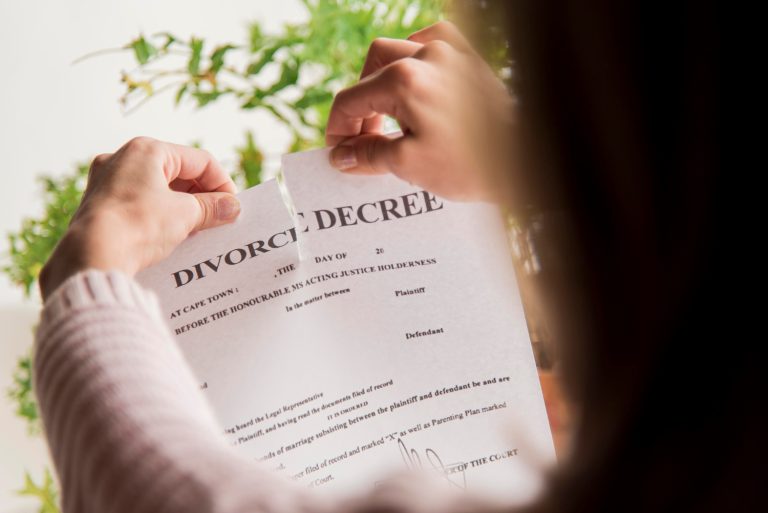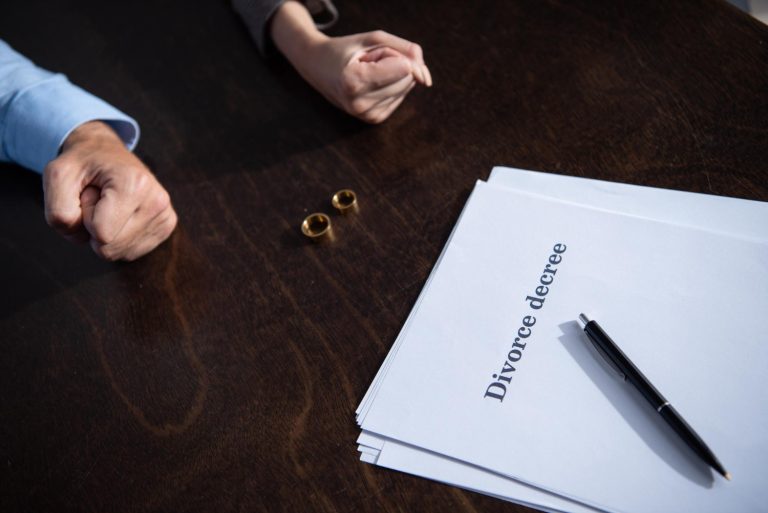Divorce can be a complex and emotional process, leaving many wondering exactly when their divorce will be finalized in Texas. At MenduniMartindill, we understand how stressful this period can be for you. With years of experience guiding clients through Texas divorce laws, we’re here to clarify the final steps of your divorce journey. Read on as I explain when you can expect your divorce to become official and how our expertise can help make the process smoother for you.
As stated in TexasLawHelp.org, a divorce in Texas is final after the judge signs the Final Decree of Divorce. There is a mandatory 60-day waiting period from the date the divorce petition was filed. The Final Decree must be filed with the court clerk to complete the process.
Understanding Divorce Timeline in Texas
The divorce process in Texas officially commences when one spouse submits a petition for divorce, initiating the legal proceedings.
Once one spouse files for divorce, the other must be informed and given a set time to respond. Next, both sides share their financial details and try to agree on a settlement. If they can’t agree, the case will go to trial.
In Texas, there’s a 60-day waiting period from when the divorce papers are filed before the divorce can be finalized. This waiting period gives both sides time to think about their decision and try to work things out. If both agree on everything, the divorce can be finalized quickly once the waiting period is over. Fundamentally, however, if they disagree on any issues, the divorce process will take longer. The time to finalize a contested divorce in Texas depends on how complicated the issues are and how busy the court system is.
Finalizing a Divorce in Texas: Key Steps
To finalize a divorce in Texas, you must work through several critical steps.
You need to live in Texas for at least six months. After that, you should file the necessary paperwork and give legal notice to the other person. You can do this through a process server or by certified mail.
Next, both parties need to go to a court hearing to talk about any unresolved issues, like child custody, splitting property, and alimony. If they agree, the court will issue a final divorce decree. If not, a judge will decide.
It’s important to divide all assets and debts properly. As a rule, you might need to list all marital property and debts carefully. This includes any retirement accounts, investments, and real estate.
Child custody and support are also key concerns. A parenting plan outlining each parent’s rights and duties is very important. Child support amounts will follow Texas Child Support Guidelines and may need financial details from both parties.
Texas Divorce Process and Timing
In Texas, the divorce process starts with one spouse filing a petition, followed by a mandatory 60-day waiting period before the finalization.
If both spouses agree, they can have a quick and simple divorce. If they can’t agree, the case will go to court where a judge will decide on things like how to split assets, who gets custody of the kids, and any support payments. This process can take from 60 days to several months, depending on how complicated the case is and the court’s schedule.
Both sides should think carefully about their choices to make sure everything is fair. When all issues are settled and a judge signs the final papers, the divorce is complete. It’s a good idea to get a lawyer to guide you through the steps and protect your rights. The time it takes to finalize the divorce can vary based on each unique situation, so be patient and careful throughout.
How Long Until a Texas Divorce is Final?
A Texas divorce can be finalized in as little as 60 days from filing, one of the shortest mandatory waiting periods in the U.S.
In Texas, you have to wait at least 60 days after filing for divorce, but it often takes longer to finalise everything.
The time needed to complete a divorce depends on several factors like how complicated the case is, how well the two spouses work together, and how busy the court is. If the spouses can’t agree on important issues, the divorce will take more time since a judge has to make decisions. In the most basic sense dividing significant assets, arranging child custody, or other complex matters can also extend the process.
Once all issues are settled, a judge will review and sign the final divorce decree at a hearing. Scheduling this hearing affects how long the whole process takes too.
So, even though the shortest waiting period is 60 days, the actual time to finalize a divorce varies based on case details, cooperation of the spouses, and court schedules.
Steps to Complete Final Divorce in Texas
An interesting fact about completing a final divorce in Texas is that one spouse must have resided in the state for a minimum of six months to meet the residency requirements.
To get a divorce, you first need to file a petition at the county courthouse where either you or your spouse lives.
Next, you must deliver the divorce papers to your spouse. You can do this through a process server or by certified mail. Your spouse has a certain amount of time to respond.
If your spouse agrees to the divorce and the settlement terms, you can proceed with an uncontested divorce. This means you both submit a written agreement on how to divide property, debts, and handle child custody or support.
If your spouse disagrees or you can’t reach an agreement, you may need to go to court. A judge will then decide on these issues for you.
You might also have to attend mediation to try to settle things out of court.
When all matters are settled, the court will issue a final divorce decree, officially ending the marriage. This document will include the terms of the divorce and any arrangements for children.
Once the divorce is final, both of you are legally free to remarry if you choose.

The Final Word
In Texas, a divorce is final once a judge signs the Final Decree of Divorce. This document outlines the terms of the divorce, including property division, child custody, and support agreements.
What MenduniMartindill is thinking you should explore is, after this decree is signed, the divorce is officially concluded, and both parties are free to move forward with their lives separately.
References
- “Texas Family Law Practice and Procedure” by Premarital Agreements, 2d ed., Texas Center for Legal Ethics and Professionalism, Elizabeth Hollis, published by Texas Lawyer Press
- “Divorce & Money: How to Make the Best Financial Decisions During Divorce” by Violet Woodhouse, published by Nolo
- “Divorce in Texas: The Legal Process, Your Rights, and What to Expect” by Tom Greenwald, published by CreateSpace Independent Publishing Platform






